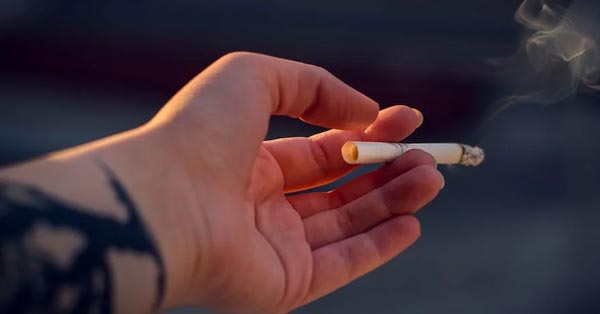Effects Of Smoking On Teeth And How To Kick The Habit
By: Donna M. Rounsaville, Colgate
![]() It's No Smoking Day, a holiday we definitely endorse! Smoking takes a toll of smoker, and their teeth. The Oral Surgery DC Team
It's No Smoking Day, a holiday we definitely endorse! Smoking takes a toll of smoker, and their teeth. The Oral Surgery DC Team
Although they aren't addressed as often as the rest of the body, the effects of smoking on teeth and the oral cavity are important pieces of information in the process of smoking cessation. Everyone knows smoking is bad for your health, but did you know it is a major contributor to dental problems as well? Although true strides have been made, the tobacco epidemic continues. Nonetheless, according to the U.S. Department of Health & Human Services, opportunities abound for kicking the habit.
Why be concerned with the oral effects of smoking? A healthy smile is paramount for most adults. It is often the first thing people notice when they're introduced to someone for the first time. And nobody wants a smile that is dull or discolored, let alone emits bad breath. The problem is that routine brushing is only half the solution; it doesn't remove the stains or reduce halitosis by itself. In addition, seek more frequent dental cleanings. These visits can foster a dialogue that opens a path to quitting.
Effects on Teeth and Oral Cavity
According to the American Dental Association (ADA) Mouth Healthy site, smoking, and tobacco use cause stained teeth, bad breath and a diminished sense of taste. Over time, smoking can hinder your immune system, producing more concerning side-effects that include a reduced ability to recover after surgery. Because of this, smoking is also one of the most significant risk factors associated with gum or periodontal disease, which causes inflammation around the tooth. This irritation can affect the bone and other supporting structures, and its advanced stages can result in tooth loss.
The use of tobacco - especially smokeless tobacco - increases your risk of oral cancer as well, which can be aggressive due to the abundance of blood vessels and lymph nodes in your head and neck.
Ultimately, the effects of smoking on teeth can lead to tooth decay and pose a challenge with restorative dentistry. Because tobacco causes tooth discoloration, the aesthetic results of this treatment are not always ideal - both extrinsic and intrinsic. In addition, gum recession can cause uneven margins on crowns and other restorations.
Smoking Cessation and Your Dentist
Dental health professionals play an important role in smoking cessation and can increase your rate of successfully quitting. According to the University of Wisconsin Center for Tobacco Research and Intervention, the qualities and attributes of the dental team are uniquely poised to combat this stubborn habit. These benefits include:
- Skills for interviewing and questioning patients about tobacco use
- Reviewing of medical histories at every visit
- Educational and motivational skills
- Trusting relationship and rapport with patients
- Regular visits that allow for follow-up and support
Dental patients are seen more frequently for oral health appointments than by their primary care providers. Taking advantage of these regular visits can be an important step to the beginning and monitoring a smoking cessation program.
Steps to Take
Using the Centers for Disease Control and Prevention (CDC)'s five keys for quitting is a terrific way to start a course for successful tobacco cessation. All healthcare providers, especially your dental hygienist and dentist, can provide support and resources. These five steps are:
- Get ready by setting a date to quit.
- Seek support from your friends and family, as well as your doctor, dentist, counselor, etc.
- Practice behavioral distractions (such as the use of Colgate® Wisp® for on-the-go brushing) when the urge to smoke comes up.
- Make use of medications - both prescription and over the counter - and use as directed.
- Prepare for setbacks and seek help for overcoming obstacles or relapses.
The effects of smoking on teeth, breath, clothes and your health, in general, can all influence a patient's desire to quit, but a visit to the dentist is an important first step. Dentists and dental hygienists will have a crucial plan that starts the process. Everyone wants white teeth, fresh breath, a healthy mouth and firm gums, and with help from your dental office, you can achieve all of these. It's never too late to quit being unhealthy.
Source: https://www.colgate.com/en-us/oral-health/basics/threats-to-dental-health/effects-of-smoking-on-teeth-and-how-to-kick-the-habit-0115?






4.9 Stars
based on 134 reviews
5 Stars
based on 11 reviews
5 Stars
based on 11 ratings